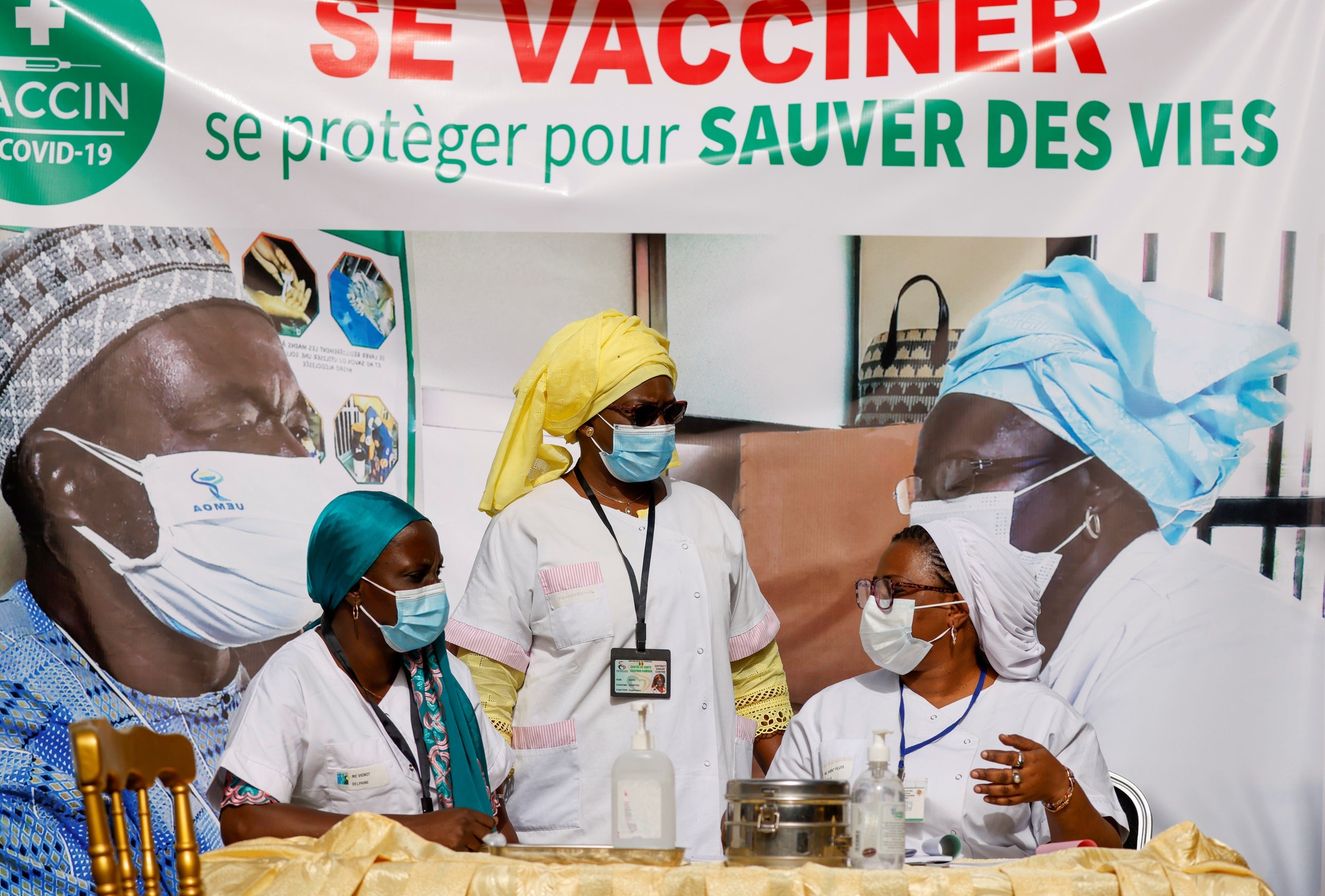Preventing pandemics means investing in equity
Global health leaders reviewed lessons learned from COVID-19 and called for health and economic security for under-served populations

Global health leaders gathered at this year's Expo2020 Dubai called on the international community to assess COVID-19’s massive impact on health, societies, and economies, and prioritize prevention – whether it’s preventing zoologic transmission or creating economic security for the marginalized – to battle future pandemics.
“Prevention means avoiding a pandemic in the first place. Preparedness means increasing our ability to respond to a pandemic that occurs. And pandemic response is what we’re doing right now, in the midst of COVID, which is actually dealing with the pandemic once it’s underway,” said Dr. Neil Vora, a Fellow at Conservation International, adding that under-investing in any of these areas will result in mismanagement of the next pandemic and an inability to save lives.
During The Next Wave: Preventing and Preparing to Beat Future Pandemics event, experts made a case for improving the interaction between human and animal health, strengthening the resilience of health systems, and promoting equity as a unified global community if we are to beat the next global health crisis.
“We need to stop deforestation so we decrease the chances of humans and wildlife interacting; we need to invest in the health and economic security of communities living in emerging infectious disease hot-spots of the world; we need to end and strictly regulate wildlife trade and markets that pose public health risks; and we need to do a better job of implementing infection control during animal husbandry,” said Dr. Vora, adding that between US$10 billion and US$20 billion dollar a year in investment could save trillions of dollars, and millions of lives down the line, especially since it’s likely a future pathogen may emerge that will defy conventional public health and clinical wisdom and misinformation and disinformation have hindered the world’s response during COVID.
Dr. Sarthak Das, CEO of the Asia Pacific Leaders Malaria Alliance, and Aidan O’Leary, Director of the Global Polio Eradication Initiative, echoed the sentiment. Creating a fit-for-future system in an era of disinformation, they said, means ensuring operational, scientific, and risk advice is backed by global cooperation and political will. Addressing the last mile – communities that are most under-served – is the only way to ensure every community is truly protected, they added.
Dr. Rhoda Wanyenze, Dean of the School of Public Health at Makerere University, who co-leads the research on Exemplars in COVID-19 Response, and Dr. Donald Kaberuka, Chair of the Board, the Global Fund, who sits on the Exemplars in Global Health Senior Advisory Board , reflected on the importance of addressing under-served communities, and shared why Uganda, the Democratic Republic of the Congo, Senegal, and Nigeria have valuable lessons to share about fighting COVID-19 despite having far less access to resources than their neighbors in the north.
All four countries detected their first cases of SARS-CoV-2 in March 2020, a few months after the onset of the pandemic, and responded by instituting multi-sector coordination structures based on previous outbreak responses. They also adopted strict public health and social measures. “These countries achieved fairly good control of the pandemic, with delayed peaks as well as a shifting of the peaks in terms of the numbers of cases reported as well as deaths,” said Dr. Wanyenze.
Nigeria, for example, leveraged existing strategies, infrastructure, and surveillance systems to coordinate and streamline its COVID-19 response, transitioning from paper-based surveillance systems to digital tools like the Surveillance, Outbreak, Response Management Analysis System (SORMAS). The DRC’s COVID-19 response included partnerships with donors and nongovernmental organizations to provide funding, supplies, and support, while facing outbreaks of other diseases. Uganda repurposed the laboratory capacity it had built for other diseases, such as HIV, for COVID-19 testing. And Senegal launched innovative partnerships to develop affordable rapid diagnostic tests and expand lab capacity and genotyping.
Dr. Wanyenze said that because essential health services were detrimentally affected, however, properly addressing future pandemics must begin with creating systems that can withstand such impacts.
“We should not forget that we have old pandemics,” said Dr. Kaberuka, “that are killing many more people than even COVID. We still have 500,000 children dying of malaria, today. And therefore, we cannot separate old pandemics and new pandemics to come,” he said, referring to AIDS, malaria, and TB, that disproportionately affect the Global South. Learning from previous – or even existing health crises – is the way forward, he said.
“This is a matter of sustainability,” said Dr. Johan Carlson, a Senior Advisor and former Director General of the Swedish Public Health Agency. "To invest in prevention means investing in equity, investing in the people most likely to be affected by these diseases. To invest in health literacy and knowledge, not just telling people what do to but explain why they must, is an investment in the future,” he concluded.
